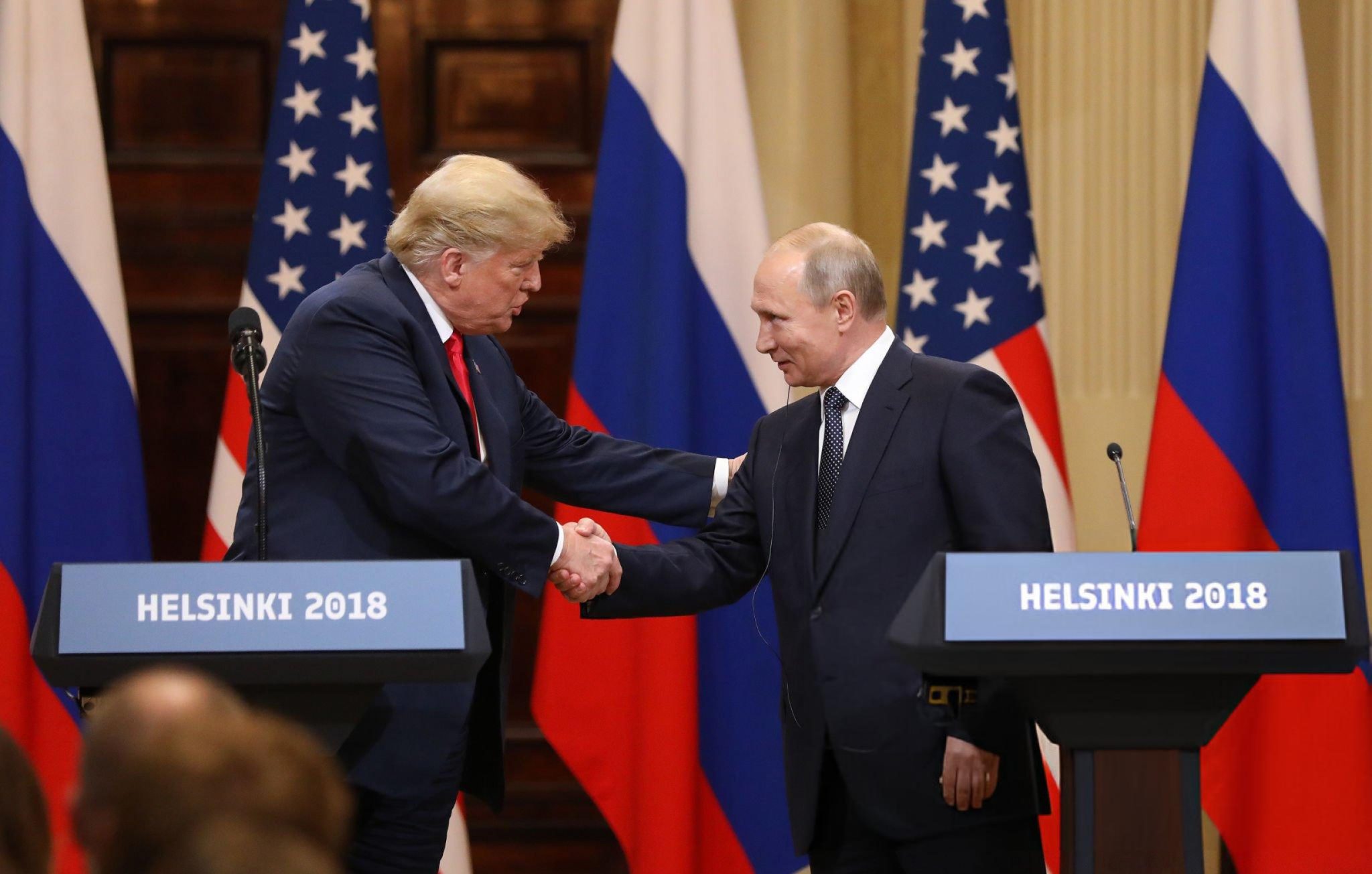Trump threatens further sanctions on Moscow in some of the US President’s strongest criticism of Putin
Donald Trump has launched an extraordinary broadside against Vladimir Putin, declaring the Russian leader has “gone absolutely CRAZY” following the largest missile and drone strike on Ukraine since the full-scale invasion began in 2022.
In a blistering social media post on Sunday night, the US President said: “I’ve always had a very good relationship with Vladimir Putin of Russia, but something has happened to him. He has gone absolutely CRAZY!”
Mr Trump condemned what he described as the “needless killing” of civilians, stating: “Missiles and drones are being shot into cities in Ukraine, for no reason whatsoever.”
The aerial bombardment, according to Ukrainian authorities, killed at least 12 people and injured scores more across several regions. It marked a major escalation in Moscow’s assault, with waves of drones and cruise missiles targeting critical infrastructure and residential areas alike.
The US President went further, warning the Kremlin that a full-scale attempt to occupy Ukraine could “lead to the downfall of Russia”. The remarks, among his most severe since taking office, signalled a potential hardening of Washington’s stance, with officials not ruling out fresh sanctions in the days ahead.
Despite the pointed rebuke, Mr Trump’s comments also included criticism of Ukrainian President Volodymyr Zelensky, accusing him of inflaming tensions. “He’s doing his country no favours by talking the way he does,” Trump wrote. “Everything out of his mouth causes problems, I don’t like it, and it better stop.”
Mr Trump’s dual-pronged attack reflects mounting frustration in the White House as the war nears its third year with no clear resolution in sight. Once proud of his rapport with Putin, Trump now appears increasingly exasperated with the Russian leader’s actions.
Speaking to reporters earlier on Sunday before departing from his New Jersey residence, Trump said: “I’ve known him a long time, always gotten along with him, but he’s sending rockets into cities and killing people, and I don’t like it at all. I don’t know what the hell happened to Putin.”
The sharp shift in tone has been evident over recent weeks. Last month, Trump used his social media platform to urge Putin to “STOP!” following another deadly series of attacks on Kyiv. In recent statements, he has repeatedly criticised the lack of progress toward peace and warned that both nations stand to lose the longer the conflict continues.
“I’m not happy with what Putin’s doing. He’s killing a lot of people,” Trump said. “This war has to stop. It’s time for leadership and common sense.”
Meanwhile, behind the scenes, diplomatic channels have seen a flurry of activity. Trump and Putin reportedly spoke by phone earlier this week, with the US President later announcing that both Russia and Ukraine had agreed to “immediately” begin ceasefire talks.
That announcement followed reports of tentative discussions between Russian and Ukrainian delegations in Turkey — their first face-to-face engagement since 2022. However, hopes for a breakthrough dimmed on Thursday when the Kremlin dismissed reports of any direct talks as premature.
While ceasefire discussions remain uncertain, analysts say Trump’s vocal condemnation of Putin and renewed pressure on Zelensky may be part of a calculated effort to force both sides back to the negotiating table.
Yet the mounting civilian toll and the scale of Russia’s recent attacks have raised doubts over the viability of any near-term peace settlement. Ukrainian officials continue to call for stronger Western support, while US diplomats now face the delicate task of balancing pressure on Moscow with calls for restraint in Kyiv.
In Washington, discussions are underway regarding potential sanctions targeting Russia’s energy exports and military supply chains. Senior figures within the Trump administration have signalled a willingness to escalate economic pressure if Russia continues to escalate the conflict.
As the war grinds on, Trump’s latest outburst suggests a growing impatience — not just with Putin, but with the entire stalemate. Whether his blunt rhetoric translates into tangible policy shifts remains to be seen.







